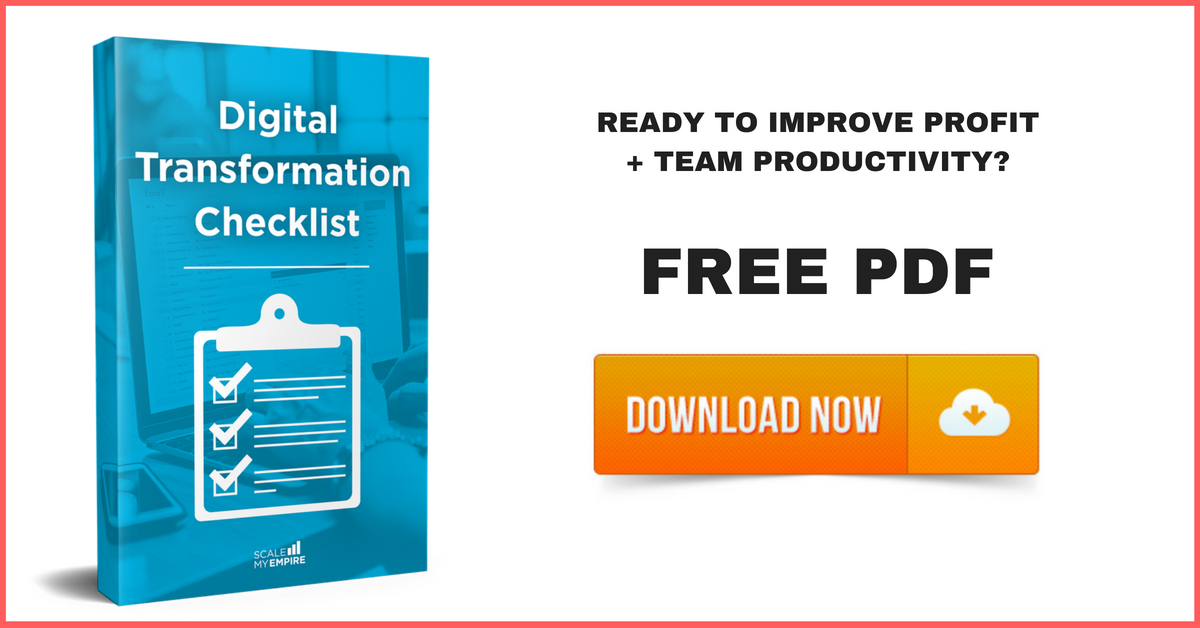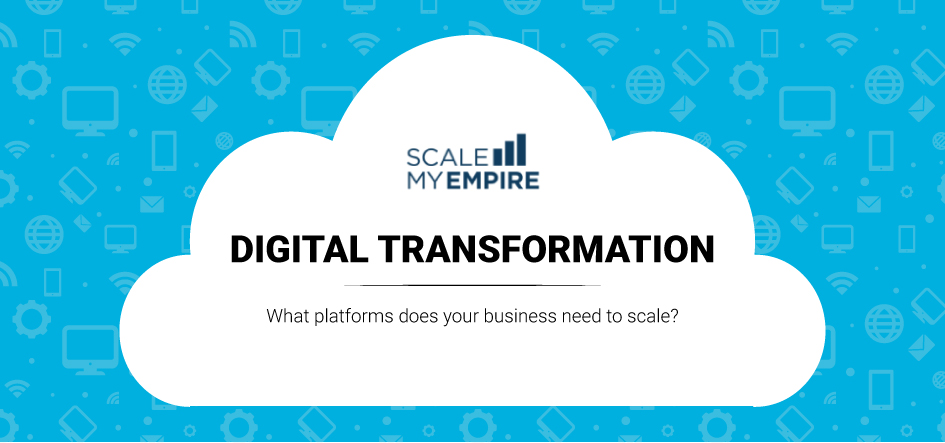
If there is one constant in the universe, it’s change.
Regardless of how stable something seems, everything goes through some form of change.
Even the rocks beneath the earth’s crust will eventually shift and become something different.
In a more relevant sense, change happens quite often in our economy and particularly so in the world of service businesses.
For example, the last 20 years has seen more change in western economic makeup than the last 200.
As we’ve moved manufacturing offshore, the rise of the services economy has taken hold.
What are we talking about when we use the term “services economy”?
We’re talking about businesses that provide service as one of their focal points.
Services, like marketing, consulting, IT, engineering etc, now make up a large percentage of the Australian economy.
In parallel to this shift has been the total revolution in information and communications technology.
This revolution has completely changed the game for services business.
How so?
As it has gotten easier and easier to get access to information, knowledge is more accessible and vastly more attainable.
Awareness of service industry businesses has become paramount to success in said industries; easier access to information through technology makes this possible.
Consider a statistic on cellular phone access in South Asia, for example.
In 2005, 8 per 100 people in this region had a subscription to a mobile phone service.
In 2011, the amount of people rose to 69 people out of 100.
That’s a substantial increase, to say the least!
While one change isn’t representative of an entire population, the growth illustrates a point: easier access to communicative and informative technology inevitably influences both consumers and employees of service industry businesses.
Many other regions, especially developing countries, have also been hugely impacted by access to information via technology.
Changes like these affect service businesses in many ways.
There are more changes, changes we’ll discuss in the next section of the article.
For now, however, let’s stick to what we’ve already talked about, and discuss some potential benefits and shortcomings associated with changes in the service industry.
Benefits of 2018’s Changes in The Professional Service Industry

Here are the benefits, at a glance:
Service industry businesses can:
- Do more with less
- Connect and communicate with a broader audience
- Create value faster
Outcomes of those benefits
- Small businesses can scale quickly
- Small businesses can compete on scale like never before, both nationally and internationally
Service industry businesses have the capacity to do much more with less due to technology automation and the abundance of information available to consumers.
Think about it this way: with the internet rampantly used by most human beings on this planet, and information available at the touch of a key on a keyboard, consumers really have the power.
This works for businesses, as well; through automation consumers are able to divulge pertinent information about products they’re interested in purchasing, businesses can invest less time in educating their audience and consumers about their products or services.
What does this all translate into?
Our first point: service industry businesses can do much, much more with less cost to them.
Our technological inclinations have brought about another benefit, as well.
Technology opens doors for communications, bringing the power of messaging, telephone, and video chatting to many types of people and places around the world.
Such communication is, obviously, an integral portion of any successful business in the service industry; customers idolize the ability to communicate with a company about any questions, concerns, or comments they might have.
With means of communication made easier, it’s easier for companies to talk to their customers.
This makes it easier for customers to voice their opinions and less likely for errors with your products or services to not be communicated with you.
Oh yeah – it also means that customers may stumble upon your company easier, whilst hunting for products or services related to your company.
Easier access to information and widely accessible means of communications are two of the three benefits we’ve mentioned.
Here’s another one: you can create value faster with your business.
With respect to business, what’s value creation?
Simply put, it’s the end result of your company’s work to appeal to its customers or targeted audiences.
Value is the foundation of business and creating value for your business isn’t always easy.
With easily accessible information, however, creating value and reaching customers through such a thing is quite possible, even if you’re new to it.
As a service-centered business, you’re constantly looking for ways to stand out from your competition, through writing, marketing, and advertising.
Access to the proper tools is important for value creation, but access to the knowledge of how to use such tools is a completely different thing.
Easier access to information makes this much easier than before.
On the customer side of things, access to more information makes attaching value to your company easier to the consumer, so long as you’re making an effort to add value to your business.
It’s a 1-2 punch, and a total knockout if done correctly.
Say you’ve developed an app or software program that specializes in helping clients with email marketing.
Adding value to your business, you’ve written a thorough, well-orchestrated blog post detailing all the ways your app may help consumers accomplish what they want to accomplish (with real-life examples, of course).
Imagine, from the perspective of a customer shopping for apps that assist marketers with email campaigns, how they would feel if they saw an app that was detailed in a brief manner, with little information regarding its real-time application.
Would you be sold on such an app?
I know that we wouldn’t.
Value is important, and adding it to a variety of facets of your business’s products and services can go a long way for your company and its audiences, with increased information access being an ever-growing aspect of consumer tendencies as 2018 gets going.
Shifts in consumer technology access as well shifts in communicative technology have all formed the foundation of the three aforementioned benefits.
It’s true, however, that there are challenges as well.
Challenges Brought About By Recent Service Industry Changes

While this year’s changes have certainly brought about potential benefits to service businesses and similar companies, some noticeable shortcomings may be present.
Here are a list of challenges your business may have to adapt to in this coming year:
- Change of power from sellers to the buyers
- Buyers have more choice than ever, can do their own research, and base their decisions on reviews/testimonials etc – not just personal relationships
- The speed of innovation is disrupting old business models every day
With bountiful access to information and communication technology, a shift presents itself in the world of service industries; the power shifts from the sellers to the buyers.
Why’s this?
It all comes down to consumer research; customers aren’t waiting for sellers to release their products.
Rather, they prefer to do their own research and find services that fit their needs, even if the initial service they’re looking for is unavailable (and it could be one of yours).
Circumventing such an issue requires a large investment in inbound marketing, or marketing utilizing free sources of advertisement, such as social media and search engine optimization.
Utilizing such a method helps attracts potential consumers to your site, and keeps them locked in on your business.
Remember: if they aren’t shopping for your products or services, they’re shopping somewhere else.
Another issue present in our new year, pertaining to service industry businesses, is (ironically) innovation.
Companies that are innovative, in this sense, are disrupting the service business industry.
Companies like Uber, Amazon, and Airbnb have all taken classic business models and turned them upside down.
What does this mean for not only this year, but many years to come?
Adaption is critical, as well as a flexible and changeable business plan.
Conventional business models might be more susceptible to the lovely but company-killing concept of innovation in the service industry.
We don’t want to overwhelm you with challenges, since you probably face enough of them already on the job.
Let’s talk about the juicy part of all this – how to adapt your business to these changes and come out on top.
The Outcomes of The Challenges (What Needs to Be Done)
Want to know a surefire way to keep your business on track this year? Don't be afraid to adapt to change. #BusinessTips Click To Tweet
There’s no getting around it; disruption is coming to services businesses, this year.
The companies that survive and learn how to adapt to disruptions will thrive for years to come.
Who knows; they might end up being the disruptor.
Mavenlink, PSA, and PM experts from Irvine, California, USA, have written a fantastic article on these challenges and how a services business like yours will need to adapt to survive and indeed thrive in 2018 and beyond.
One of the biggest challenges Mavenlink mention in the article is the globalisation of resources.
Particularly, technical resources are being commoditized.
What does this mean?
It means that unique products, regardless of their features, are no longer as unique as we previously thought.
In other words, it no longer pays to hold your own in house team of experts, but rather draw upon a pool as needed.
Services like UpWork saw this coming years ago and have filled the gap for low cost / low expertise resources already.
Larger firms, however, will need to consider how they can restructure their organisation to handle a contract oriented workforce that can be ramped up and down on a per project basis – highly dynamic teams.
Within your company, everyone needs to be on board with the changes.
Teams have to learn that adaptive habits are a must, in today’s highly volatile business world.
If the people can change daily, what represents the value of your business must be something that differentiates you.
We, at Scale My Empire, have implemented this feature ourselves.
It’s resulted in a 10% upside to our bottom line.
If we can improve, why can’t your business?
Final Take On Benefits, Challenges, And Adaptation
Change is inevitable. Embrace it for the betterment of your business. #ScaleMyEmpire Click To Tweet
As we’ve stated already, change is constant.
Whether ice is melting or cities are expanding, change happens all around us, on a daily basis.
Change, of course, extends to the reaches of business, and with the nature of readily available information as well as communication-enhancing technology, services industries are particularly susceptible to it.
2018 brings new challenges, benefits, and threats to service businesses.
What does this mean?
You have to change for the better, before the change strikes your business for worse.
Your company needs to be the change.
Adaption is critical in 2018, for we could see many a company follow the trends of now-successful businesses like Netflix, Amazon, and Spotify.
They stuck their feet in doors that stayed shut.
In other words, the brought the change to the conventional models of business.
So learn to adapt, and don’t worry about thriving.
For if your business model/business tactics are adaptive, you’ll be prepared for anything!
Looking for more ways to successfully scale your empire? Check out The Perfect Tech Stack today!




